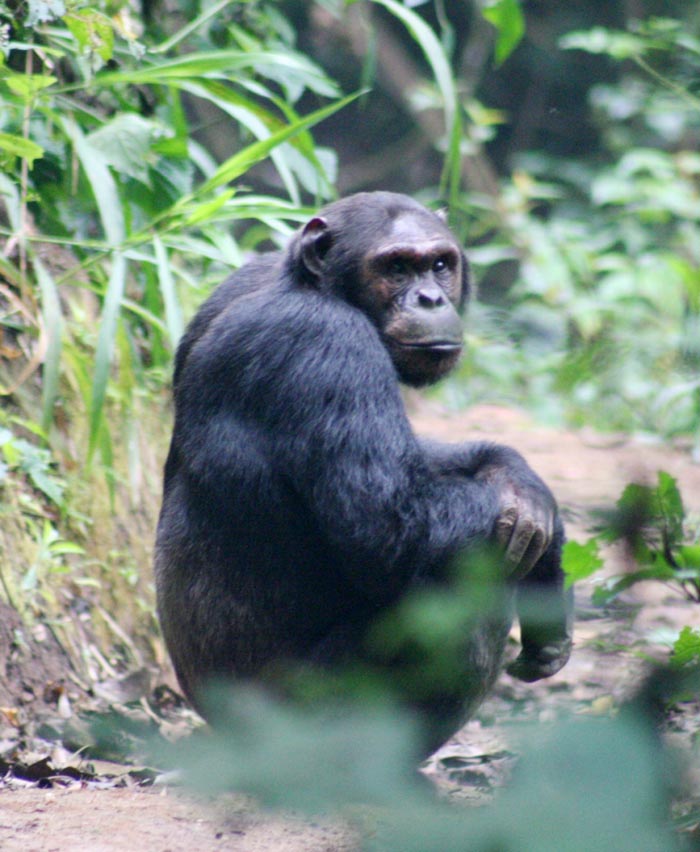Burundi is supported by Great Apes Survival Partnership (GRASP) in protecting the great apes that are endangered worldwide and particularly in Burundi. This was confirmed at the GRASP Regional Meeting held in Bujumbura from 4 to 6 September 2014.-By Lorraine Josiane Manishatse
The meeting gathered environmental and wildlife professionals from Burundi, Rwanda, Uganda, Tanzania, Southern Soudan and Democratic Republic of Congo, and was organized by GRASP. Burundi is the only county in this list that holds great apes, but isn’t supported by GRASP. “Starting now, GRASP will support Burundi in protecting the great apes”, says Claude Hakizimana, Chief Park Warden of Kibira National Park.
The Great Apes Survival Partnership’s vision is to conserve and expand all existing wild great ape populations and habitats and ensure their long-term viability. It was established in 2001 to address global threats to great ape populations and habitats by utilizing the collective resources of the partnership to respond to the conservation crisis facing mankind’s closest relatives. Increases in deforestation, illegal hunting, habitat loss, illicit trade, agro-industrial expansion, human population growth and disease not only put the great apes in danger, but these activities encroach upon their habitats as well.
Experts predict that by 2030, over 90% of great ape habitat will have been disturbed by the expansion of development projects. The rapid progression of these threats has caused an especially dramatic decline in some orangutan and gorilla populations. In 20th Century alone, great apes are believed to have become extinct in four African countries, and have dwindled to fragile populations in others.
The situation of great apes in Burundi is deplorable
According to Claude Hakizimana, there is no activity to protect great apes in Burundi, except some limited guarding activities by the Institute in Charge of preserving Protected Areas (INECN). “The protected areas’ protection is not effective at all. They are threatened by people who cultivate and live in it. There are problems with tree cutting, bamboo cutting, deforestation and poaching. One can’t protect great apes if its habitat is being destroyed”, says Hakizimana. He mentions that great apes were abundant at Kibira National Park and South Forest Reserve (Bururi, Vyanda and Rumonge forests). The more the Great Apes’ habitat is destroyed or reduced, the less likely it is they reproduce.
He regrets that studies show that in Kibira National Park there were 400 chimpanzees per Km2 in 2007 and in 2013, there were about 300 chimpanzees per Km2. The Kibira National Park is 40 000 hectare or 400 Km2. It should be noted that in Burundi the chimpanzees are among fauna species identified as in extinction. This is supported by Cites Law, an International Convention on Trade of Wild Threatened and Endangered Fauna and Flora Species.
Hakizimana asks the government of Burundi to adopt good and strict measures to protect Kibira as well as other protected areas. He also recommends the GRASP organization to support a cross border understanding between Burundi and Rwanda in protecting Kibira and Nyungwe forests effectively. GRASP should also help in developing tourism based on great apes in Burundi so that the latter can be protected more effectively. Hakizimana calls upon journalists to update the public on the great apes situation as there are only a few left in some areas of the world. “The imminent extinction of great apes is a sign of great destruction by the hand of human beings. Great apes are very close to us”, he concludes.
—————————————————————————————————————————————————-
The Great Apes Partnership (GRASP) is a unique alliance of nearly 100 nations, research institutions, United Nations agencies, conservation organizations and private supporters committed to the long-term protection of great apes and their habits in Africa and Asia. Under the UN umbrella, GRASP unites the major stakeholders committed to the protection of great apes, and the GRASP secretariat is jointly hosted by the UN Environment Program (UNEP) and the UN Education, Scientific and Cultural Organization (UNESCO).
GRASP works to highlights issues of International concern, such as illegal trade or illicit logging and mining, and it leverages its political advocacy on behalf of great apes. To raise the public profile and awareness on these issues, GRASP produces studies that address these threats and provides analyses on alternatives.















 IWACU Open Data
IWACU Open Data

